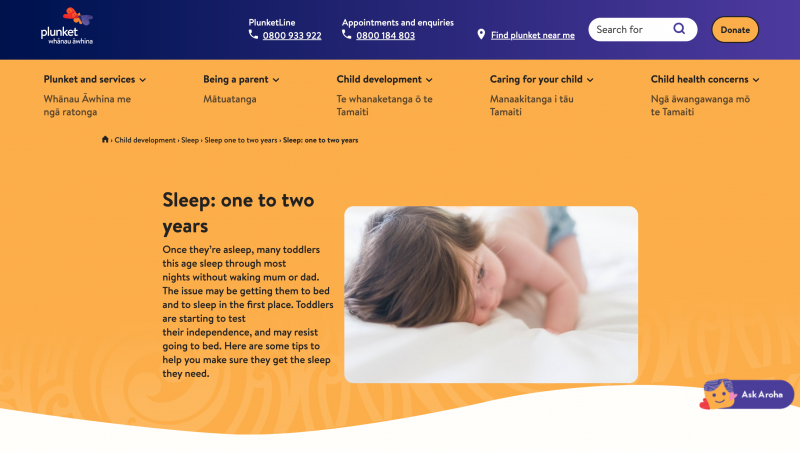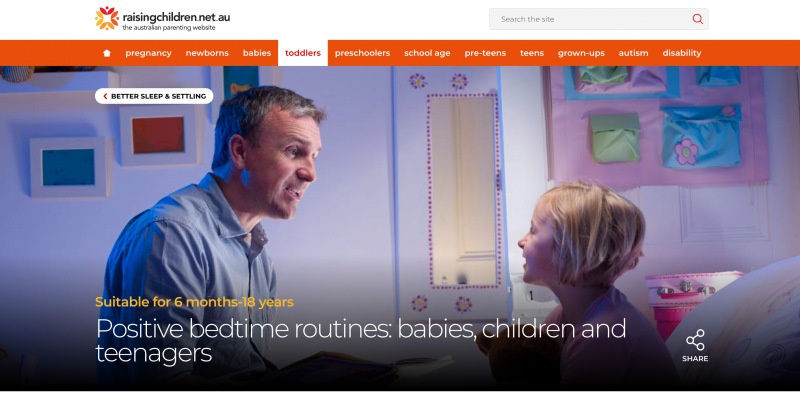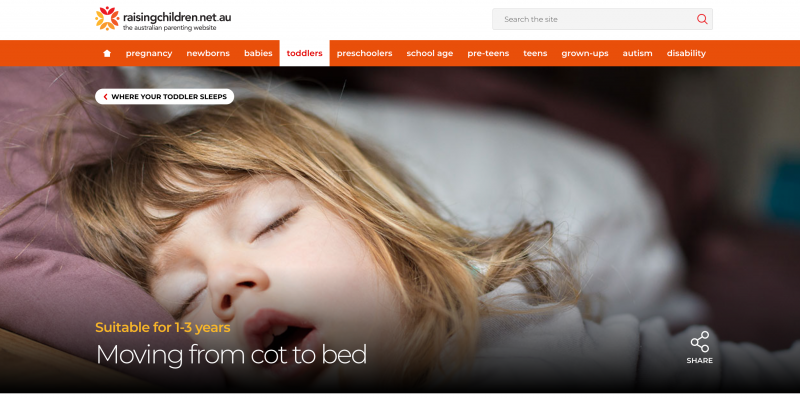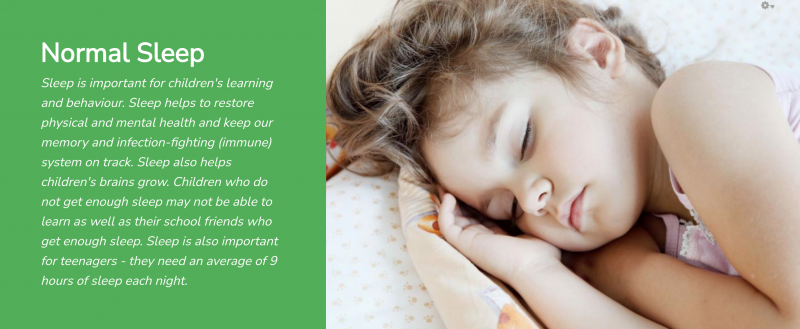Normal Sleep - Toddlers 1 To 3 Years
Normal Sleep - Toddlers 1 To 3 Years
Toddlers need sleep to grow and develop. Sleep needs vary and change as they grow. Your toddler's sleep needs may differ from other toddlers their age. Knowing what to expect at each stage helps you understand their sleep needs as they grow.
Key points on sleep in toddlers aged 1 to 3 years
- most toddlers need around 11 to 14 hours of sleep over a 24 hour period
- toddlers usually sleep around 10 to 12 hours at night and 1 to 2 hours during the day
- while toddlers are growing and developing their sleep can change a lot over this time
- a positive bedtime routine helps toddlers settle to sleep
- as your toddler grows and develops you will want to transition them from a cot to a bed
- if you have concerns about your toddler's sleep, seek support from a trained healthcare professional
This page is about sleep in toddlers. It's part of a whole section on normal sleep.
My toddler's sleep - what to expect
As toddlers grow and develop, their sleep can change a lot. Toddlers generally sleep for around 11 to 14 hours over 24 hours. They have a day nap lasting around 1 to 2 hours. Some toddlers wake early in the morning and need an earlier bedtime.
Check out the Raising Children website for information on what to expect with your toddler's sleep as they continue to grow.
Sleep cycles in children
Everyone cycles between different sleep cycles while they sleep.
After about 6 months of age, a child’s sleep cycle contains:
- rapid eye movement (REM) sleep
- non-REM sleep
REM sleep is also known as dream sleep. Non-REM sleep consists of both light and deep sleep. It is hard to wake a child during deep sleep, but they will wake from light sleep easily. The amount of non-REM and REM sleep in a cycle will change over the night.
Children have a lot of deep non-REM sleep just after falling asleep. They often sleep soundly in the first few hours after going to sleep. Children are more likely to wake in the second half of the night when they have more REM and light non-REM sleep.
As children get older, their sleep cycles get longer. A toddler around 3 years old will have sleep cycles lasting around 60 minutes.
Will a bedtime routine help my toddler sleep?
A bedtime routine can be helpful for getting your toddler off to sleep. Most toddlers are ready for bed around 6:30pm to 7:30pm. Their deepest sleep generally falls between 8pm and midnight.
A positive bedtime routine can help calm your toddler ready for sleep. This may include things such as:
- having a bath and cleaning their teeth
- reading a story
- singing songs
- having a cuddle
- saying goodnight and turning out the light
It is important to keep the bedtime routine the same even on weekends to help your toddler feel calm and ready for sleep.
See the Raising Children website for more ideas on how to set up a positive bedtime routine for your toddler.
Daytime naps for toddlers
Your toddler may still need 2 naps a day when they’re around 12 to 18 months old. By 3 years they may only have 1 nap or may have dropped their daytime nap completely. If your toddler has a long nap or they nap later in the day, they may not be ready for bed until late at night.
You can set up a pre-nap routine like their bedtime routine to help keep their naps consistent. A pre-nap routine could include things like a story and a cuddle. It’s best for your toddler to nap in their cot or bed.
Check out the Whānau Āwhina Plunket website for more information about naps.

Is it normal for my toddler to keep calling out?
Some toddlers go through a phase of getting up or calling out after they’ve been put to bed. To help this, you can try the following:
- turn off TVs, tablets and computers at least an hour before bed
- avoid lively enthusiastic play just before bed so they aren’t overstimulated
- set up a calming bedtime routine for your toddler
- check your child has everything they need before you leave their room and gently remind them to stay in their bed
You will need to check whether your toddler needs anything when they call out such as a nappy change. If they do, keep the lights low and the environment quiet.
Night feeding your toddler
It is normal for babies to wake often in the night when they are younger. They will wake to feed and for comfort. As babies get older, they generally wake less often overnight.
Where should my toddler sleep?
It is helpful to keep the sleeping environment consistent for your toddler. Keeping the room dark and reducing loud noise can help your toddler to settle.
Toddlers may need to move from a cot to a bed if they can climb out of their cot. Sometimes the transition occurs when a new baby needs the cot. It is important that you set up a safe environment for your toddler to sleep in. Continuing a positive bedtime routine can help your toddler transition to sleeping in a bed.
You can find more information on the Raising Children website on moving your toddler from a cot to a bed.
Where can I get support?
If you have concerns about your toddler's sleep or you feel like they’re not sleeping well, it is important to reach out for support.
PlunketLine
Call PlunketLine 24 hours a day, 7 days a week on 0800 933 922.
PlunketLine is available 24 hours a day for advice and support for you, your toddler and your whānau. Calls are free from cell phones. You do not need to be registered with Plunket to use this service.

Call PlunketLine on 0800 933 922 for parenting advice.
Healthline
Call Healthline 24 hours a day, 7 days a week on 0800 611 116.
Healthline provides free advice to parents and whānau if you’re worried your toddler may be unwell. They can help find services nearby such as an afterhours medical centre if you need to see a doctor.
Your GP or doctor
If you are worried that your toddler is unwell or showing signs of distress or pain, see your GP so they can check your child. You can also talk to your GP if you are needing extra support with adjusting to life with a toddler.
See more KidsHealth content on normal sleep at different ages
This page last reviewed 04 April 2023.
Do you have any feedback for KidsHealth?
If you have any feedback about the KidsHealth website, or have a suggestion for new content, please get in touch with us.
Email us now




